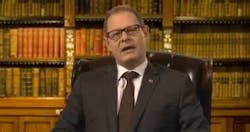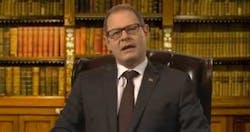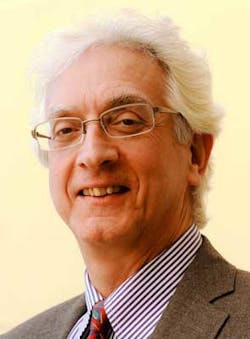Implant dentistry's origins, challenges, and discoveries described in Academy of Osseointegration historical video
The video describes the early challenges of implant dentistry and how the science has evolved over the past 30 years. Because of the ongoing commitment of these early experts and their predecessors to research, technological advancements, and proper training, dental implants are now highly predictable and commonplace with a success rate of about 95%.
RELATED |Highlights of research presented at the Academy of Osseointegration's 2014 annual meeting
Dr. Alan Pollack
From small conclave to global organization
In May 1982, Dr. Per-Ingvar Brånemark introduced osseointegration to North America at a conference in Toronto, Canada, sparking much interest and enthusiasm and creating ripples throughout the dental community. Proponents of the new science were determined to improve the success rate of implants, which had been only about 50% until that time.
After learning of this new technique, Drs. Charles Berman and Gerald Barrack formed the New York Osseointegration Study Group, described in the video as “a small conclave of friends with a shared passion to understand and share knowledge about this new science.” This group evolved into AO, as it known today.
“We were going to have to learn from each other,” said Dr. Barrack in the video regarding the new study group. “There wasn’t anyone else to learn it from.”
The first meetings were attended mostly by local dentists in New York and the surrounding areas. This original study group expanded into a national organization and then into the international organization with approximately 6,000 members from 70 countries. The Academy has the same focus today as it had in the early days of its formation: to advance the vision of implant dentistry.
The video debuted in March at AO’s annual meeting in Seattle. In addition to Dr. Pollack, the task force included Dr. Russell D. Nishimura (Westlake, Calif.), and Dr. Michael Norton (London, England), who serves as narrator.
“The Academy’s Board of Directors created this video to capture an important page in the history of dentistry and to chronicle the Academy’s rise to the world’s leading dental implant organization. In fact, the development of osseointegrated implants parallels the growth of the Academy itself,” said Dr. Norton in the video’s conclusion. “The Academy has been the centerpiece for sharing knowledge and the interchange of new ideas since our first meeting.”
The video is an oral history to accompany the written account, “A History of the Academy of Osseointegration, 1985-2007,” published in 2008.
For more information about the Academy of Osseointegration, follow AO on Facebook and Twitter.


